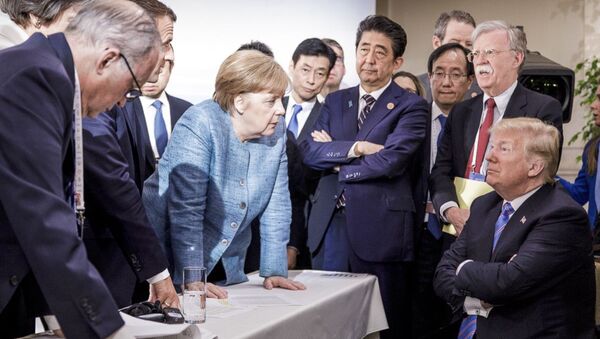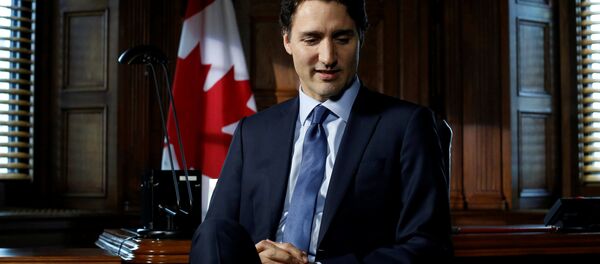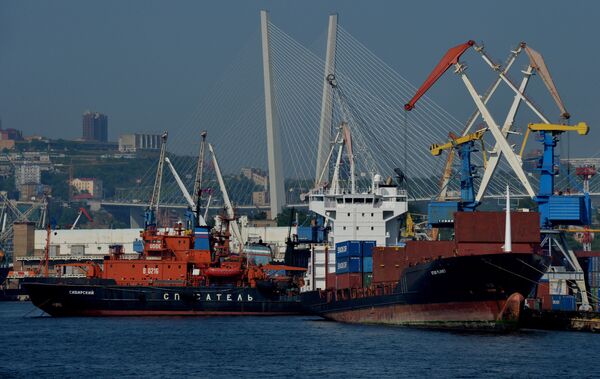Trump vs. China
On Friday, Beijing introduced a $50 billion 25% tariff on over 650 US goods including whiskey, soybeans and electric cars in response to new US restrictions on $50 billion worth of Chinese goods containing "industrially significant technologies."
The new round of the growing US-China trade spat follows Trump's announcement in March that he would introduce tariffs on $50 billion worth of Chinese goods in "response to unfair trade practices." Beijing answered by introducing tariffs on over 100 US goods, from airplanes and automobiles to pork, soybeans and steel. Trump then directed the Office of the US Trade Representative to consider another $100 billion in additional restrictions.
Trump vs. Canada and Mexico
In January 2018, Washington imposed globally applicable tariffs on solar panels and washing machines. In April, President Trump announced a 25% tariff on steel and a 10% tariff on aluminum, with exemptions for the US's Canadian, Mexican and EU partners. On June 1, these exemptions were lifted, leading to an extremely tense mood at last week's G7 meeting in Quebec. Since that summit, a back and forth war of words has continued between Trump and Canadian Prime Minister Justin Trudeau.
Trudeau called the steel and aluminum tariffs "insulting and unacceptable" and vowed that Canada would "not be pushed around" and retaliate. Canada's response is expected to target $16.6 billion-worth US products, from dishwasher detergent and toilet paper to sailboats, lawnmowers and more.
The three countries are also engaged in tense negotiations on the North American Free Trade Agreement (NAFTA), a Clinton-era agreement which Trump has called the "worst trade deal ever made." Washington on one side and Ottawa and Mexico City on the other disagree over the Trump administration's insistence that NAFTA must have a sunset clause, which would require that the deal be reapproved every five years.
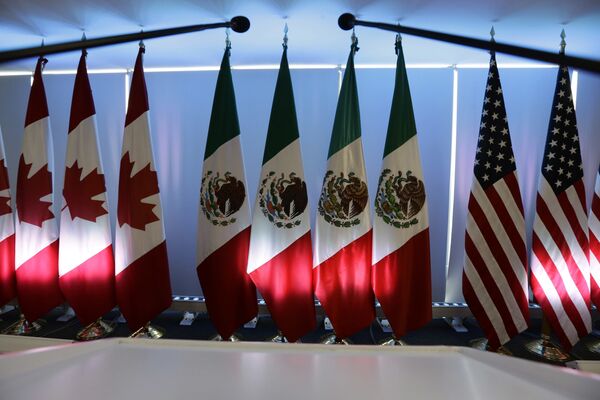
Trump vs. the EU
Trump's across-the-board tariffs on steel and aluminum have impacted Europe as well, and prompted the EU to begin preparations for targeted tariffs against states and counties that voted heavily for Trump during the 2016 presidential election. So far, the list of goods targeted includes bourbon, cranberries, orange juice, peanut butter and steel, and is worth an estimated $3.4 billion.
Brussels, which has authority over trade policy for all 28 members of the bloc, has also issued a formal complaint at the World Trade Organization, although the dispute resolution process is expected to take years.
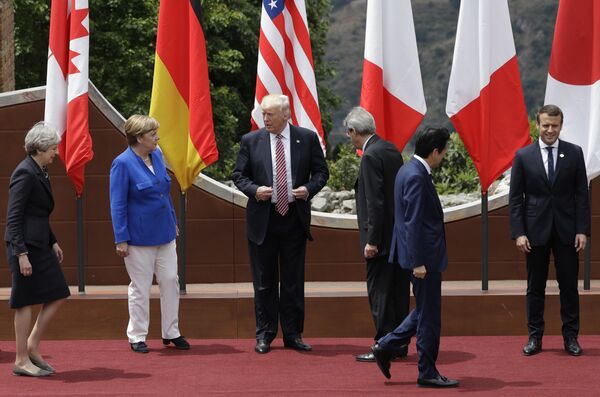
What About Russia?
Amid the intensifying trade conflict between the US and virtually all its major trading partners, one country, Russia, may seem conspicuously absent. However, a closer analysis reveals that the Russian-US trade is at a low level to begin with. In 2016, just 3.3% of Russian exports worth $9.43 billion were sold to the US. During the same period, imports from the US amounted to 6.1% of Russia's total, or $11.1 billion.
In other words, with a trade balance favorable to the US, and already at such a low level (and made lower by US sanctions after the start of the Ukraine crisis in 2014), Trump seems to have little reason to start an economic beef with Moscow.
Why is Trump Doing This?
Trump's protectionist attitudes on trade are nothing new. In fact, he has been discussing the "unfair" nature of America's trade agreements with other countries since at least the 1980s. In a revealing interview with Oprah Winfrey in 1988, Trump summed up a position he would reiterate thirty years later as president.
Asked what he would do differently from other presidents, Trump responded: "I'd make our allies – forget about the enemies, the enemies you can't talk to so easily, — I'd make our allies pay their fair share. We're a debtor nation. Something's going to happen over the next number of years with this country, because you can't go on losing $200 billion. And yet we let Japan come in and dump everything right into our markets. It's not free trade," the businessman said.
With Oprah asking whether Trump was considering running for president, he responded that he "probably wouldn't do it. But I do get tired of seeing what's happening with this country…how we're really making other people live like kings, and we're not."
Thirty years later, the US's global trade deficit has grown to $500 billion, and Washington's tariffs are Trump's way of trying to redress an imbalance he first began talking about three decades earlier.
